
If you’re at the start of your weight loss journey and you’re struggling to know the best way to get started then look no further. This article breaks down why and how you should be looking at your calorie intake, and whether or not your can lose weight through either diet or exercise alone.
What is a calorie?
Your body stores and burns energy as fuel.
Food delivers energy to your body so that it will function.
We must give this energy a unit of measurement so that we can measure it.
A calorie is the unit we use to measure this energy.
When the word “calorie” is used in nutrition settings, by dieters or simply by consumers who are talking about food, they are usually using a casual definition of calorie. But they are actually referring to kilocalories, which is what you see on nutrition labels. This is how the two terms are different:
Calorie = The amount of energy required to heat 1 gram of water by 1oC
Kilocalorie = The amount of energy required to heat 1 kilogram of water by 1oC
How many calories to we need?
Your BMR
BMR Stands for Basal Metabolic Rate
BMR is described as the minimum amount of energy your body requires to keep you alive and your organs functioning normally.
This BMR is different for everybody and will change due to a number of variables such as body size, age and gender. For the purpose of this article, which is to investigate whether diet or exercise is the best way to lose weight, we will use an average.
The average woman burns 2,000 cals per day and the average man burns 2,500 cals per day.
How many calories does it take to burn 1lb of fat?
Why 3,500 of course! That means that if we manage to maintain a deficit of 500 calories per day then we will lose 1lb per week.
7 days x 500 calories = 3,500 calories = 1lb
Next we’re going to look at how we can achieve this.
Losing weight through exercise alone

Let’s start with the question that’s on everybody’s lips!…
How many calories do we burn when we exercise?
The answer is, probably not as many as you would like to think!
A 30 minute session on the exercise bike at a moderate intensity will burn approximately 260 calories as shown in a study from Harvard Medical School. Some exercises will burn more calories than others for example Elliptical trainer 335 cals or high impact step aerobics 372 cals per 30 minutes.
Based on this it would take nearly 7 hours of pedalling on an exercise bike to burn a measly 1lb!
This is why relying on losing weight by exercising alone can be futile, especially if you don’t address your bad eating habits.
*These figures are based on an average person weighing in at 155lbs. The amount of energy you expend will increase the more you weigh – so bear that in mind!
Exercises that burn the most calories
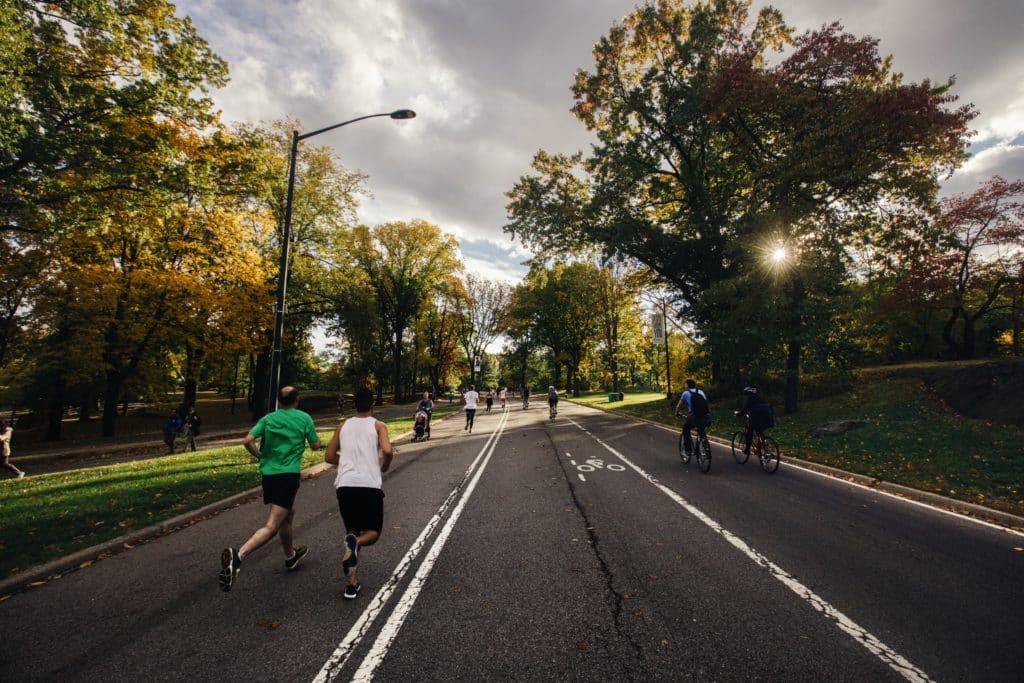
Your choice of exercise is crucial if you are counting on exercise to burn your calories for you. Some of the best exercises for losing weight according to the same study are:
- Cycling @ 20 mph 614 cal/30 mins
- Running @ 10 mph 614 cal/30 mins
- Swimming (Front Crawl) 409 cal/30 mins
Good luck keeping these up for any extended period of time!
The best exercise for weight loss
HIIT or High Intensity Interval Training involves brief “all-out” training periods (possibly only 30 seconds) separated by “rest” periods where you have a chance to get your breath back.
The important factor here is that you train at maximum intensity for those short periods to make your heart rate spike
This will what is known as “the afterburn effect”. This can cause your metabolism to increase after the training has stopped. This, in turn, causes you to burn more calories. The jury is out on how effective this actually is, but either way it’s a great way to increase your fitness levels which in turn will allow to to train at a higher intensity in your following sessions.
If you’re struggling to get your head in the game, try downloading my free e-book – 5 Pillars of Weight Loss
Losing weight through diet alone
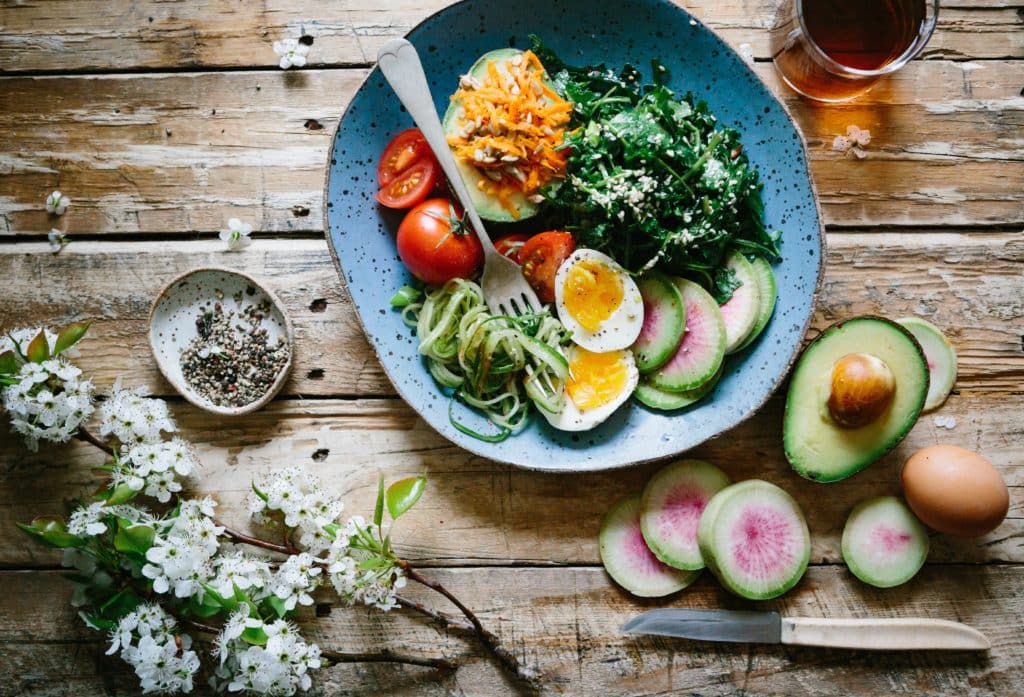
We’ve established that the most effective way of losing weight is by addressing your diet, so the next question is how many calories should i be consuming?
We need to restrict our calorie intake to 500 below your BMR to lose 1lb per week – for the purpose if this we will assume the base rate is 2000. Therefore you will be looking at a calorie intake of 1500 per day.
The negative impacts of restricting your calorie intake
You may think that all you need to do to lose weight quickly is to severely restrict your calorie intake and the lbs will just drop off.
Here’s 5 reasons why that might not be such a good idea:
Restricting calories can lower your metabolism
Several studies have shown that eating fewer calories than your body needs to function can cause your metabolism to slow down, which will cause you to burn fewer calories. This is because a calorie restricted diet often has the effect of causing your body to lose muscle mass, especially if your diet is low in protein and not combined with exercise.
Restricting calories can cause fatigue and nutrient deficiencies
Regularly eating fewer calories than you require to function will more than likely mean you are not consuming the required nutrients your body needs. Below is a list of nutrients that you may be lacking on a severely restricted diet and some of the potential side effects:
- Protein
Muscle loss, hair thinning and brittle nails
- Calcium
Reduce bone strength and increase the risk of fractures
- Biotin and Thiamine
Muscle weakness, hair loss and scaly skin
- Vitamin A
Weaken your immune system and cause permanent eye damage
- Magnesium
Fatigue, muscle cramps, migraines and abnormal heart rhythms
Restricting calories can reduce fertility
An insufficient calorie intake can reduce fertility in men but more so in women as the ability to ovulate is dependant on hormones, the availability of which are dependant on the amount of available calories in a woman’s diet.
Restricting calories can weaken your bones
This is due to the fact that a reduced calorie diet will can reduce testosterone and estrogen levels. Low levels of these two hormones are thought to reduce bone formation and increase bone breakdown causing weaker bones.
Restricting calories can lower your immunity
Studies have shown that there may be a link between a reduced calorie and a reduction in the effectiveness of your immune system raising the risk of infection and illness. This seems to be particularly true when combined with strenuous physical activity.
Remember having a healthy metabolism is one of the best ways of making sure you’re burning more calories. It sounds counter-intuitive but eating less food could slow your metabolism, making you more miserable and lethargic and causing your body to hang on to whatever calories you’re putting into it.
The benefits of exercise
Just because you may not lose weight by exercising alone does not mean you shouldn’t do it… Oh no! Quite the contrary. There are so many reason why you should be exercising on a regular basis. Here is a list of 5 of the best reasons to engage in regular exercise:
Improve your mood
Exercise can increase the production of endorphins, which are known to help produce positive feelings and reduce the perception of pain.
Raise your metabolism
Regular exercise has been shown to increase your metabolic rate, which will burn more calories and help you lose weight.
It’s good for your muscles and bones
Regular exercise stimulates the release of hormones in the body that promote your muscles ability of absorbing amino acids. Paired with an adequate protein intake this will stimulate muscle building.
Increased energy levels
Research has shown that regular exercise can increase energy levels in those suffering from persistent fatigue as well as those suffering from more progressive illnesses such as cancer, HIV/AIDS and multiple sclerosis.
Reduced risk of chronic disease
Regular exercise will improve cardiovascular fitness, body composition and also decrease blood pressure and blood fat levels.
The benefits of a good diet
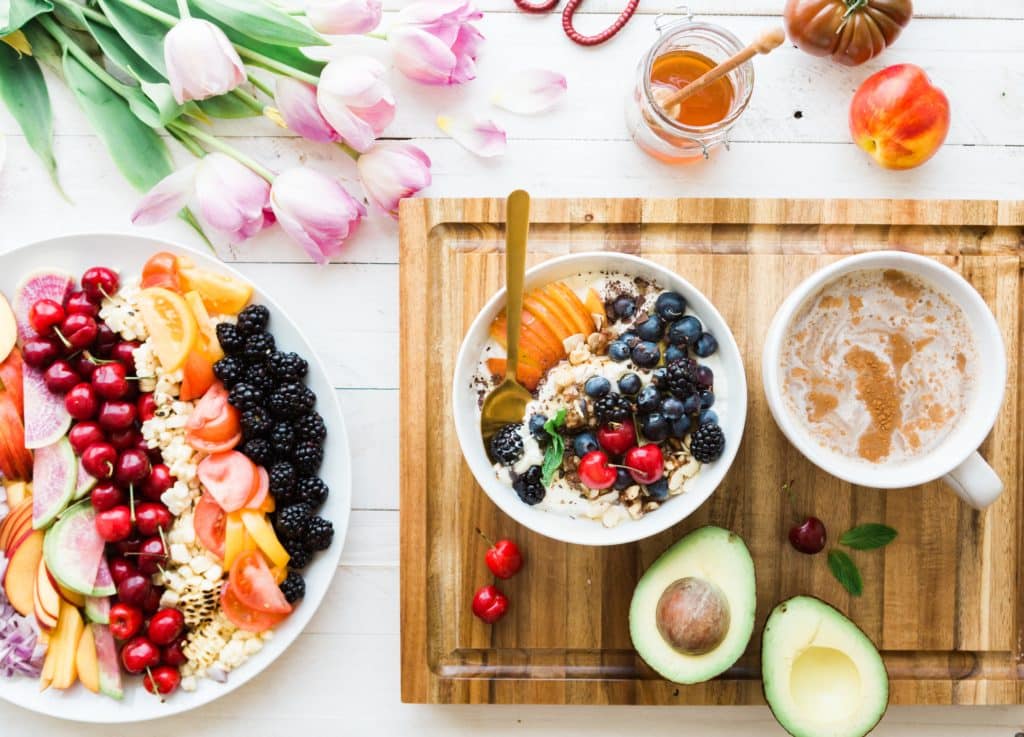
Improvement in heart health and stroke prevention
Risk of heart disease can be reduced by having a healthy diet that is rich fruits, vegetables, whole grains and low fat dairy. This is achieved by maintaining blood pressure and cholesterol levels. Omega 3 fatty acids are also good for your heart health and are found in oily fish like salmon or trout.
Reduced Cancer Risk
Obesity may increase a person’s risk of developing cancer. Being in a healthy weight range can reduce this risk. Research has also shown that a diet rich in fruit, vegetables and fibre lowers the risk of developing different types of cancer.
Improvement in mood
Certain foods have high levels of the amino acid tryptophan, which is a precursor to the brain neurotransmitter serotonin. A diet high in tryptophan can have a positive impact on the brain’s production of serotonin which in turn can a reduction in depression, anxiety, mood disorders, insomnia, poor cognition and other brain disorders.
Improved gut health
A diet low in fibre and high in sugar can cause inflammation in the colon, whereas a diet rich in vegetables, fruits, legumes and whole grains provides a combination or prebiotics and biotics that help good bacteria thrive in the colon. Also, research now suggests a link between gut health and brain health, linking anxiety to stomach problems and vice versa.
All the more reason to make sure you have a healthy gut.
Improved sleep patterns
So… What Next?
That’s that’s facty bit done, well done for getting this far.
Next I’ll summarise what we’ve learned and give you my opinion on the best weight loss strategy!
So… what do we know?
- We need to be in a caloric deficit to lose weight.
- Unless you manage the amount of calories going in, it’s going to be hard work to lose weight through exercise alone.
- Reducing your calorie intake too much can have a negative impact on your health.
Finding a strategy that works for you will take time and commitment. The key to weight loss is consistency. Consistency in your nutrition and consistency in your training.
The key to consistent nutrition is finding a system that you enjoy.
The key to consistent training is finding something you enjoy.
You should be looking at this a way of life, not a temporary fix.
If you plan on losing weight quickly and then going back to your old ways then you’re heading for disappointment and further misery down the line.
Learning to enjoy living healthily can mean that you need a shift in your mindset or outlook on life.
Here’s the Plan
This blog provides general information and discussions about health and related subjects. The information and other content provided in this blog, or in any linked materials, are not intended and should not be construed as medical advice, nor is the information a substitute for professional medical expertise or treatment.
If you or any other person has a medical concern, you should consult with your health care provider or seek other professional medical treatment. Never disregard professional medical advice or delay in seeking it because of something that have read on this blog or in any linked materials. If you think you may have a medical emergency, call your doctor or emergency services immediately.
The opinions and views expressed on this blog and website have no relation to those of any academic, hospital, health practice or other institution.
- Create a calorie deficit of 500 calories per day through your diet
- Burn an additional 500 calories per day through exercise
- This will put you in a 1000 calorie deficit
This approach should enable you to lose 1-2 lbs every week whilst maintaining a healthy balance.
If you think this is too slow then think about this…
- Where will you be in 1 year?
- Where will you be in 5 years?
- Where would you be now if you’d started this 1 year ago?
This approach will promote healthy eating habits that are sustainable in the long term. Eating habits that won’t negatively affect your health.Taking advantage of the benefits of both exercise and a healthy diet.
Why are you doing this?
Do you want to look ok on the beach in 3 months time and then let yourself go as soon as you get back from your holiday?
Or
Do you want to look great on the beach every summer for the foreseeable future and live a happier and healthier lifestyle?
Hopefully the answer is the latter.
This is the rest of your life we’re talking about, so start thinking about the long term benefits to your health and well being and stop focusing those short term fixes or shortcuts
Psychological and physical addictions to food are very real things and we all battle with it to a certain extent. It is so important to invest time into understanding your own relationship with food.
Get your mind out of the immediate gratification mode and start to plan for the long term.
Look at the bigger picture. It may take longer to get there but you will be a healthier, happier you.
The Secret to Successful Weight Loss
Here’s the secret to successful weight loss.
Are you ready for it?
Here it is…
There are no shortcuts.
There is no substitution for hard work, commitment and discipline.
Losing weight is hard.
Being overweight is hard.
Choose your hard.
If you want to push yourself and take on one of life’s greatest challenges then I’m here to support you.
The rewards are worth it.
Good luck
Andy
Resources and further reading
https://www.lifehack.org/363322/6-reasons-why-diet-more-important-than-exercising-for-weight-loss
https://www.medicalnewstoday.com/articles/322268.php
https://www.nhs.uk/live-well/exercise/exercise-health-benefits/
https://www.healthline.com/nutrition/10-benefits-of-exercise#section9
https://blog.myfitnesspal.com/how-many-calories-are-you-really-burning-in-the-gym/
https://www.nhs.uk/live-well/healthy-weight/understanding-calories/
https://www.healthline.com/nutrition/how-many-calories-per-day
https://www.bodybuilding.com/content/what-is-the-best-hiit-workout.html
https://www.healthline.com/nutrition/calorie-restriction-risks#section2
https://www.livestrong.com/article/454212-fatigue-while-on-a-calorie-restricted-diet/
https://www.health.harvard.edu/diseases-and-conditions/the-gut-brain-connection

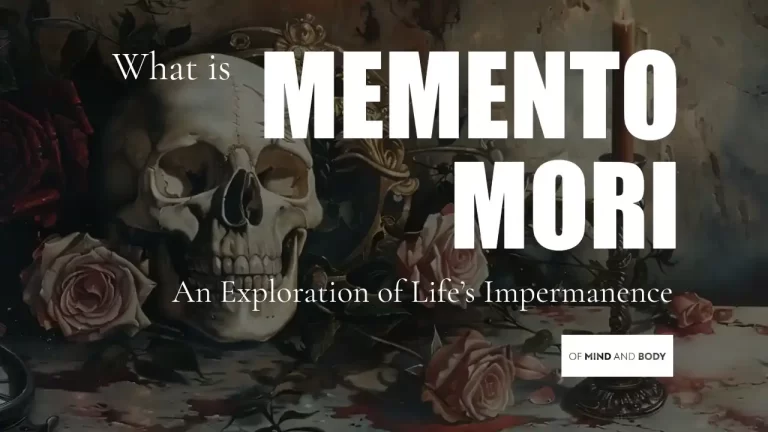
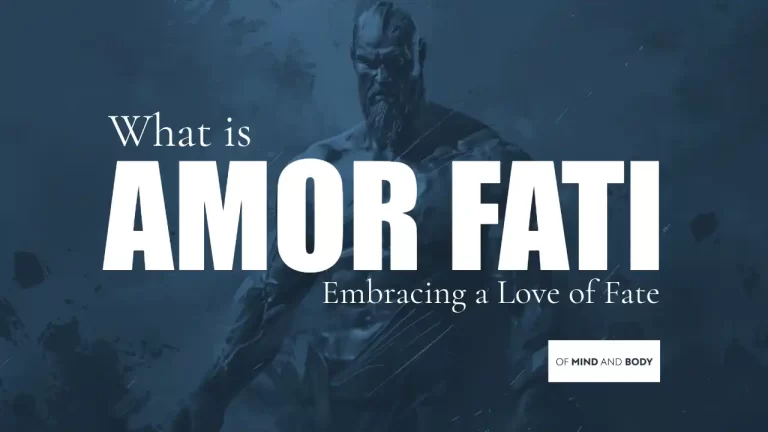

One Response